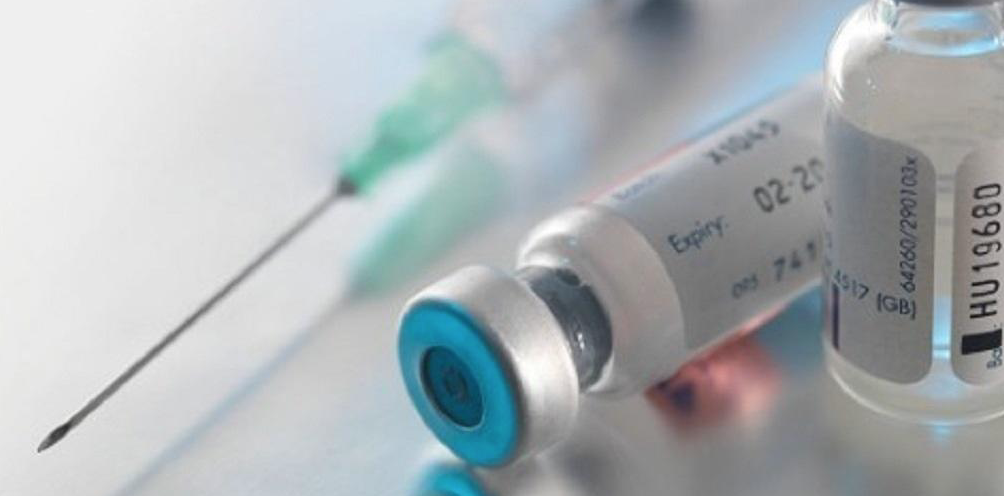DHL says early pandemic lessons will ease distribution hurdles for Covid vaccine
Healthcare division will rely on redundant DCs, mobile labor force, warehouse robots, execs say at Gartner show.

Contract logistics provider DHL Supply Chain is applying some of the lessons it learned from maintaining logistics operations during the early days of the coronavirus pandemic as it prepares to handle a future surge of shipments for a potential Covid-19 vaccine, the company said Wednesday.
As coronavirus infections, shutdowns, and travel bans upended both business and personal patterns across the country, the company realized it had to better understand its vulnerabilities and improve its resiliency, Scott Cubbler, president of DHL Supply Chain’s life sciences and healthcare division, said in a briefing.
For example, DHL found that some of its clients were operating facilities that were “single threaded,” meaning all their North American inventory was in one facility. Under the looming specter of business closures, that made those clients feel exposed because they had no plans for redundant operations if that facility got shut down, Cubbler said.
One of those facilities was located outside Boston, an early coronavirus hot spot, so DHL had to plan for a scenario where 30 people out of the site’s 75 workers got exposed to Covid-19, or if the state’s governor simply shut it down. “But you can’t simply pick up and say we’re going to take these drugs and move to a facility down the road. These facilities are highly regulated; they need to be licensed, and that takes months,” Cubbler said.
In another type of challenge, DHL says that Covid-19 has completely changed consumers’ behavior and expectations with regard to delivery speed, product availability, and e-commerce patterns, Cubbler said in a session Wednesday at the Supply Chain Symposium/Xpo, a virtual trade show hosted by the research and analyst firm Gartner.
That effect has imposed some large changes in distribution center operations. For example, facilities that provide medical equipment inventory for elective surgeries slowed down because hospitals stopped doing those procedures. At same time, other facilities saw booming demand for the consumer goods, groceries, and pharmaceuticals they handle. “We had some of our facilities go to zero activity and others literally doubled their activity,” Cubbler said. “But we were able to move equipment and labor around where it was needed.”
Recent investments in technology helped DHL stay flexible under those conditions, including DHL Supply Chain’s move earlier this year to spend more than $70 million to expand its North American life sciences and healthcare capabilities by expanding its use of autonomous mobile robots (AMRs). The company now operates collaborative picking robots, robots for loading and unloading trailers, and automated pallet putaway robots, he said. Another key technology has been the firm’s online visibility portal, known as MySupplyChain, that allows its clients to monitor warehouse operations for the latest data on variables like inventory availability or shipment status.
And finally, the firm said its health protocols such as mask wearing, temperature taking, and social distancing have helped to keep its Covid-19 infection rates lower than regional averages. At the Gartner session, DHL Supply Chain’s COO, Val Hoge, said the company has seen just 1.2% of its total North American workforce become infected.
Pointing to that spectrum of lessons learned during the pandemic, Cubbler said DHL is prepared to handle the global logistics surge required to distribute a potential Covid-19 vaccine, even though many experts say that event could stress the capabilities of existing logistics networks.
“We have more than 30 life science facilities around the country, covering more than 11 million square feet and almost 2,000 employees trained in life sciences,” Cubbler said. “So the situation may be unprecedented, but how we respond really isn’t that new to us. We have clients who develop new medicines and pharmaceutical products all the time, so how we work with our customers hasn’t changed. We’ve moving [inventory] from manufacturing sites to points of entry, whether that’s direct to consumer or to a pharmacy or to a wholesaler.”
Scott Cubbler, President of Life Sciences & Healthcare, and Val Hoge, Chief Operations Officer, will be speaking in the session "The 'Never Normal': Supply Chain Management in a Pandemic" at the @Gartner_SC Supply Chain Symposium 2020. #GartnerSC https://t.co/LV4xuLxXO9 pic.twitter.com/M0RFRxWw3Q
— DHL Supply Chain (@DHLsupplychain) October 30, 2020
Related Articles

Copyright ©2024. All Rights ReservedDesign, CMS, Hosting & Web Development :: ePublishing